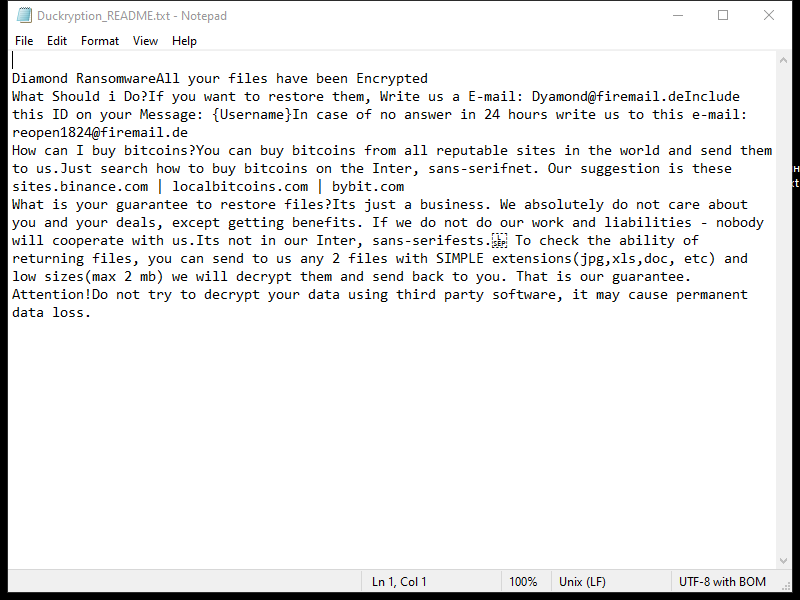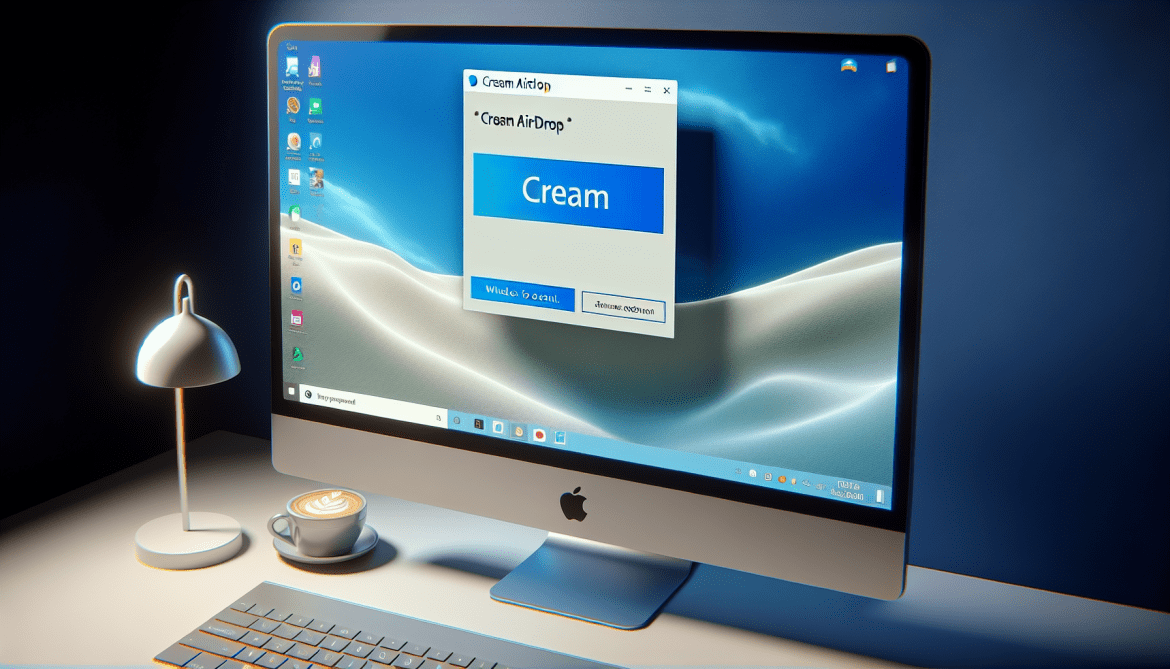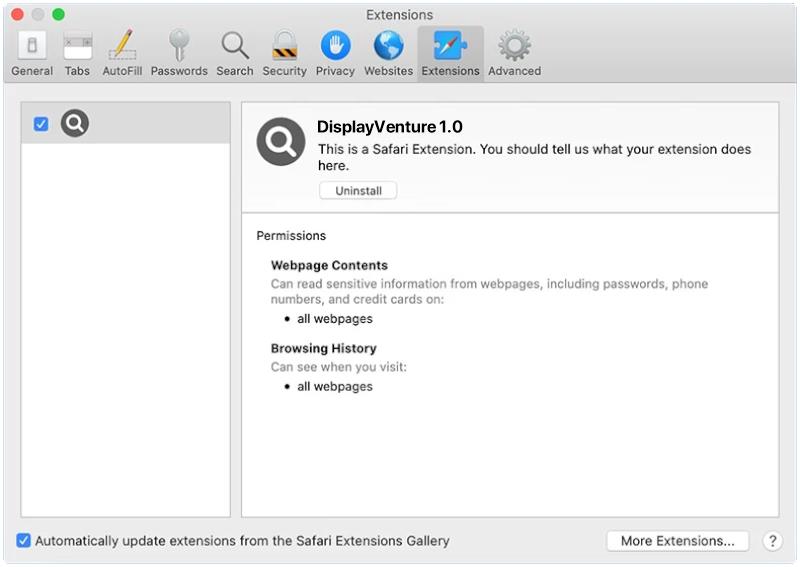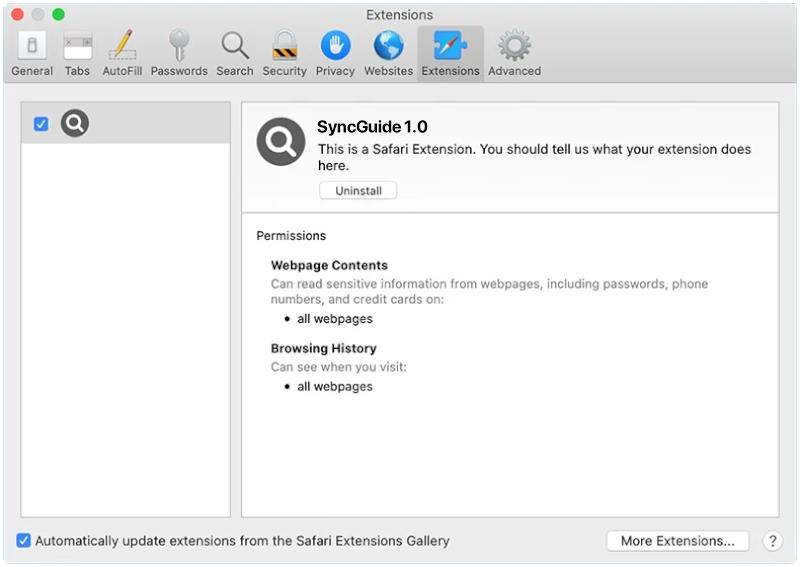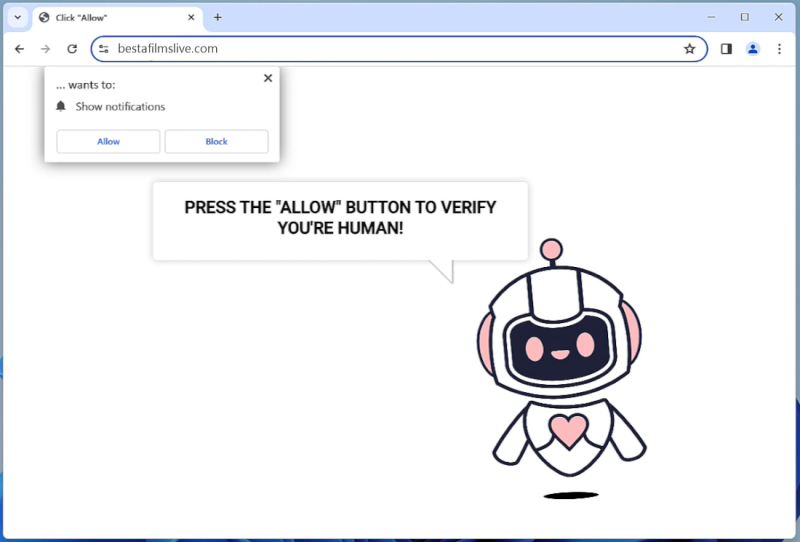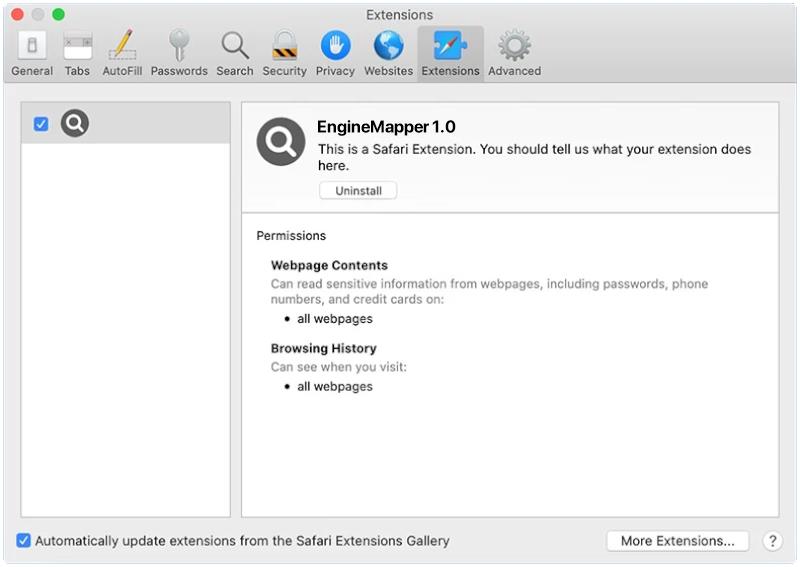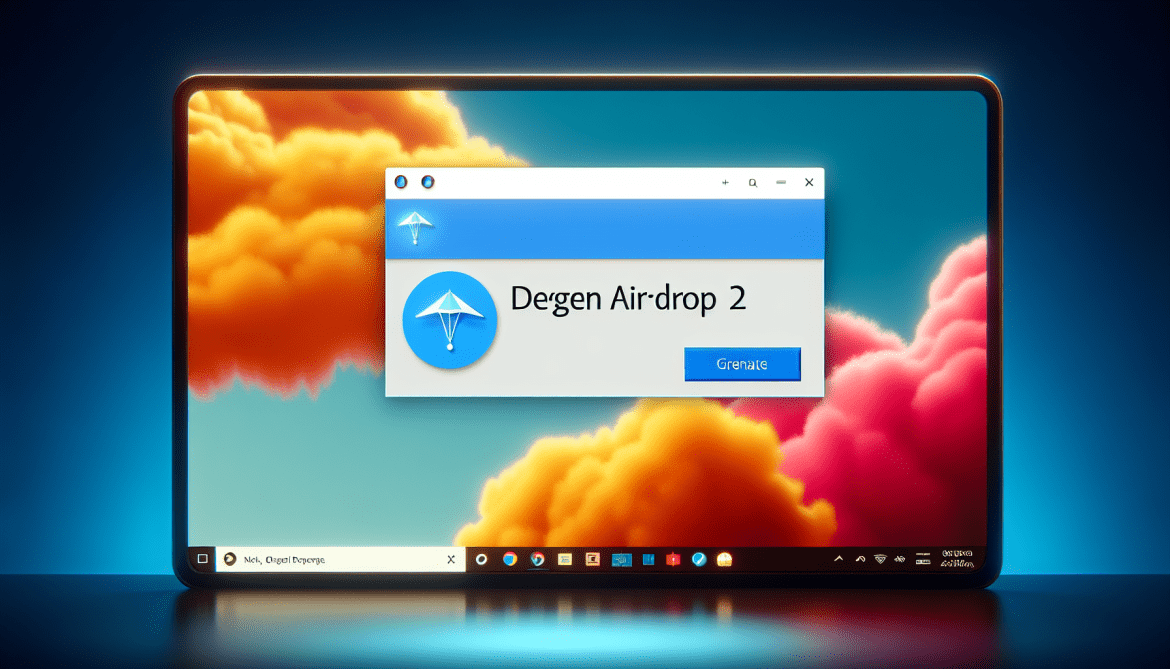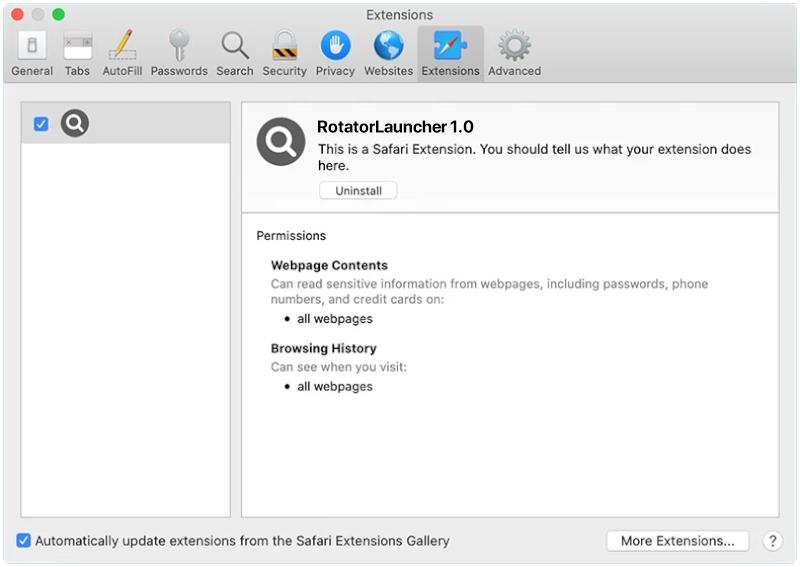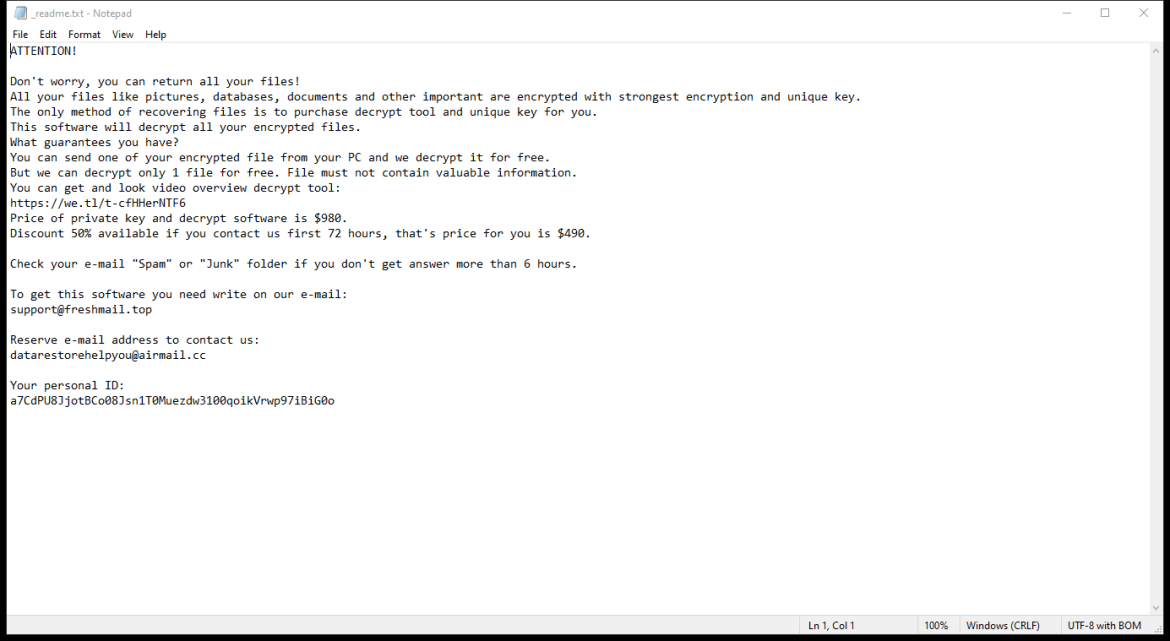.iamond (Duckcryptor) Ransomware is a type of malware that infects computers by spreading through malicious email attachments, fake software updates, or exploit kits. Once it infects a computer, it encrypts the files on the system, adding a .diamond extension to them.
The ransomware uses a strong encryption algorithm to lock the files, making them inaccessible without the decryption key. It typically creates a ransom note in the form of a text file or pop-up window, which contains instructions on how to pay the ransom in exchange for the decryption key.
As of now, there are no decryption tools available for Diamond (Duckcryptor) Ransomware. However, it is not recommended to pay the ransom as there is no guarantee that the attackers will provide the decryption key or that it will work properly.
If your files have been encrypted by Diamond (Duckcryptor) Ransomware, the best course of action is to restore them from a backup, if available. If you do not have a backup, you may try using data recovery tools to recover your files, although there is no guarantee of success.

